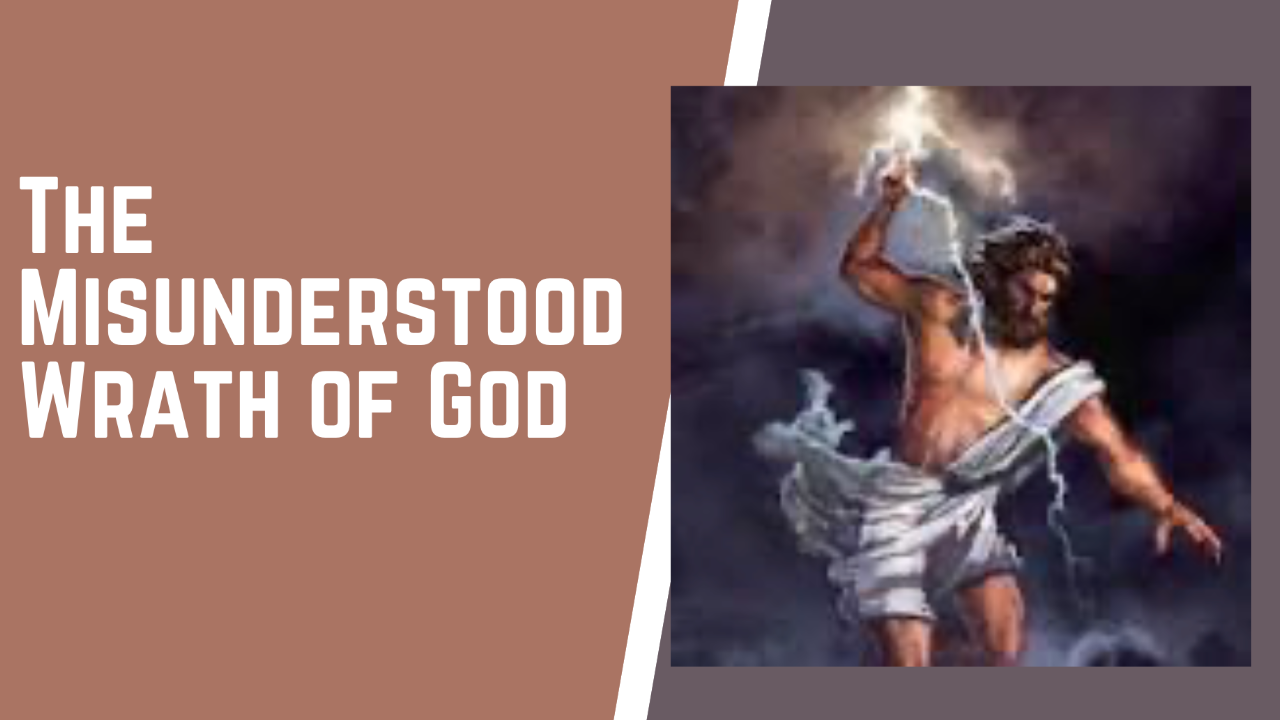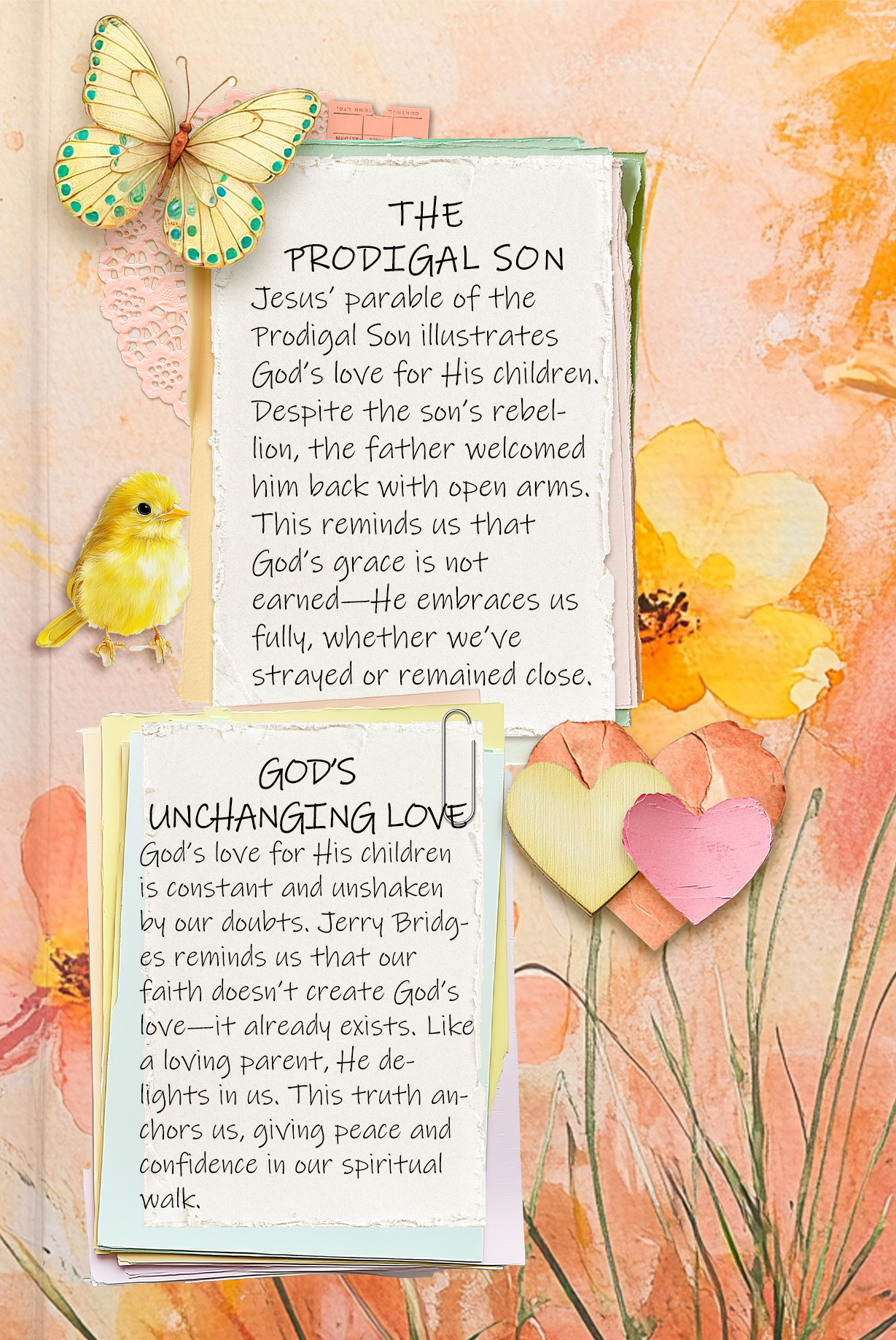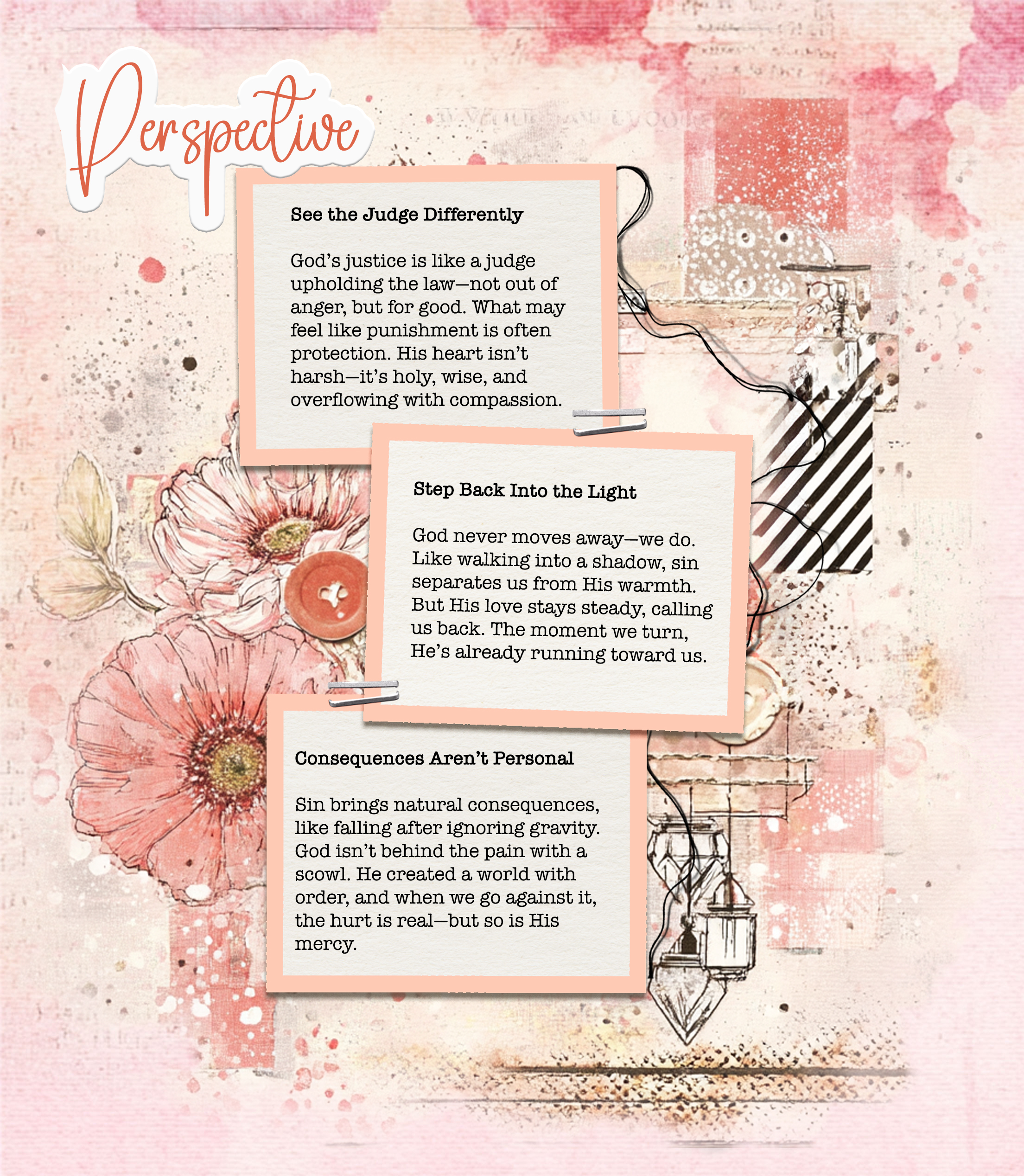
In all the books I’ve written, the most important message I want to leave behind is this: God is love—and He is not angry with you. His heart is not hardened against you. He is not waiting to punish but longing to heal, to restore, to draw you close.
If I could press one truth into every hurting soul, it would be this—you are not held in the hands of an angry God, but in the arms of a loving Father. That is the heartbeat behind everything I write, teach, and live.

Some people carry a quiet fear deep in their hearts—that God is disappointed in them, maybe even angry. They picture Him as distant, arms crossed, waiting for them to fail again. But that image doesn’t reflect the truth of who God is.
What often looks like His wrath results from how we perceive Him when we’ve turned away from His goodness.
When someone lives in sin or selfishness, the pure light of God’s love can feel painful—like sunlight to sore eyes. But that pain isn’t proof of His anger. It’s a reflection of our spiritual condition.
Think of it like sunlight hitting diseased eyes. The sun isn’t angry—it just hurts because of the condition of the eye.
God doesn’t punish or cast people into hell. People choose separation when they can’t tolerate the light and purity of His presence. He never turns from us—we turn from Him.
Scripture sometimes uses human language like “wrath” or “vengeance” to help us understand, but those are metaphors. God is steady, kind, and always working to lead us back to His love. What seems like judgment is often mercy calling us home.

Sinners in the Hand of An Angry God?
Much of what many believe about God today—especially the idea that He is mostly angry, vengeful, or eager to punish—has been shaped by sermons like Jonathan Edwards’ Sinners in the Hands of an Angry God. While that message stirred fear and repentance in its time, it also distorted God’s character. It painted Him as distant and furious, holding us over hell like a spider over fire. But that’s not the God revealed in Scripture. The truth is, God is love. His correction flows from compassion, not rage. His longing is to restore, not destroy. When we teach fear without love, we misunderstand the gospel. We don’t belong in the hands of a wrathful God—we were created to live in the arms of a loving Father.
1. God Is Not a Distant, Angry Judge
They argue that Jonathan Edwards’ sermon wrongly portrays God as distant, wrathful, and ready to destroy, needing to be appeased by Jesus. This, they say, reflects a legal framework that distorts the gospel. Instead, they emphasize a relational God, always motivated by love, not vengeance.
2. The Cross Was About Reconciliation, Not Appeasement
According to these teachers, the idea that Jesus had to “save us from God” is a tragic misunderstanding. Baxter Kruger calls it a “pagan view” of atonement. They teach that the cross was God in Christ reconciling the world to Himself, not Jesus rescuing us from a furious Father.
3. God's Wrath Is Not the Opposite of His Love
They acknowledge divine wrath but redefine it—not as emotional rage, but as the painful experience of rejecting love. Like walking into the sun with sore eyes, it hurts—but the sun isn’t angry. God’s “wrath” is what we feel when we turn from love, not something He inflicts.
4. The Trinity Has Always Been for Us
All three emphasize that Father, Son, and Spirit have always been united in love toward humanity. There was never a moment when God was against us. The idea of Jesus pleading with an angry Father is foreign to the Trinitarian viewthey hold. In their words, God is not angry—we are.
When Jonathan Edwards preached Sinners in the Hands of an Angry God in 1741, America was gripped by the First Great Awakening—a time when religion emphasized fear, judgment, and the threat of hell. Preachers used terror to stir repentance, often portraying God as angry and ready to punish. While the revival sparked real change, it also shaped generations to see God more as a wrathful judge than a loving Father—a distortion the gospel gently corrects.
What About the Fear of God?
The true fear of God is not about terror or punishment, but about awe, reverence, and deep respect for divine love. It’s the natural response of the heart when it encounters God’s goodness and holiness. Fear, in the unhealthy sense, comes from misunderstanding God's character—as if He were distant, angry, or demanding. But when we see Him rightly—as a loving Father, full of mercy and grace—fear gives way to trust. This kind of fear isn’t about being afraid to approach God, but about being overwhelmed by His beauty, wanting never to turn away from love itself.

God is not angry. He is love.
His commandments are not traps—they’re boundaries of protection. His discipline is not revenge—it’s rescue. His heart is not full of wrath—it’s full of mercy.
It all comes down to perspective.
Imagine a man who drives drunk and loses his license. He may walk out of court thinking the judge is angry or unfair. But the judge isn’t angry. He’s upholding the law to protect the community. The consequence isn’t personal—it’s part of a system designed for safety and order.
In the same way, the pain we feel from sin is not God’s fury. It’s the natural result of breaking the spiritual laws He set in place to protect us.
Now think of someone who jumps from a rooftop and breaks a leg. No one blames gravity. Gravity doesn’t have emotions. It simply is. Ignoring it brings pain.
God’s moral law is like gravity. It isn’t fueled by rage. It is consistent, unchanging, and for our good. When we break His design, we’re not punished by an angry God—we’re experiencing the fallout of stepping outside His covering.
The Sun Doesn’t Move—We Do
Picture a child playing in sunlight. He wanders behind a wall and suddenly feels cold. He cries, “The sun left me!” But the sun hasn’t moved. He did.
That’s how sin works. We step into the shadows, away from God’s presence, and feel abandoned. But God hasn’t changed. He’s still shining, still calling, still waiting.
Discipline Isn’t Anger
A loving father sees his toddler wandering toward a busy street. He calls out. He runs. He grabs the child’s arm and pulls him back. The child may cry, confused by the sudden force. But the father isn’t angry. He’s protecting.
God’s discipline often feels sharp, but it comes from His deep love. Hebrews 12:6 reminds us, “The Lord disciplines the one He loves.” This isn’t about fury. It’s about a Father fighting for His child.
God’s Wrath Is Not Like Ours
Human anger is unpredictable and selfish. God’s wrath is not like that. In the Bible, “wrath” often refers to His holy response to sin—the pain and separation that naturally follow rebellion. It’s not emotional instability. It’s a clear line drawn in love.

The Burning Building
Sin is like a house on fire. God doesn’t yell because He’s mad we’re inside. He shouts because He’s desperate for us to come out alive. He’s marked the exits. He’s waving us toward them. But if we ignore His voice and stay inside, the fire will consume us—not because God is cruel, but because we refused to leave.
God Is Kind
Romans 2:4 says, “It is the kindness of God that leads us to repentance.” He isn’t chasing us with thunderbolts. He’s wooing us with love. He knows what sin does to the soul—it wrecks it. And He’s doing everything He can to bring us back to life.
You Don’t Have to Be Afraid
If you’ve seen God as angry, consider this a new invitation. You don’t have to run from Him. You don’t have to cower in shame. He’s not pacing heaven waiting to punish you. He’s standing at the edge of the road, looking for you, arms open wide like the father of the prodigal.
He is not angry. He is love. Always has been. Always will be.
Let that truth reshape your heart.
Books by Robin Sampson
- Discovering Inner Peace: A Bible Study on Letting Go of Anger, Bitterness, Guilt, and Shame. A 22-lesson Bible study exploring how to overcome anxiety, anger, and emotional storms through God's presence and promises.
- Beauty from Ashes: Finding God’s Purpose in Your Deepest Pain
My personal story—an autobiography woven into 22 Bible study lessons—sharing how God brings purpose through pain and redemption through every trial. - Discovering Women of the Bible: Lessons in Faith, Courage, and Biblical Femininity
A devotional study highlighting the lives of biblical women and the timeless wisdom they offer for living with faith, strength, and purpose. - Discovering God's Purpose for Women: Wisdom from Proverbs 31 for Today’s Woman
A fresh look at the Proverbs 31 woman—not as an unreachable ideal, but as a reflection of God's grace-filled design for women in every season. - Discovering Hope in a Corrupt World: Lessons in Standing Firm and Trusting God’s Promises
A study on how to remain anchored in God’s truth and promises—even when culture seems to crumble around us. - Jesus in the Biblical Holidays: Illuminating God’s Appointed Times in the Old Testament Feasts
A study of how each biblical feast points to Jesus, revealing God’s plan of redemption woven through every appointed time. - A Family Guide to the Biblical Holidays: With Activities for All Ages
An extensive guide covering the biblical holidays, complete with activities suitable for all age groups. - Ancient History: Adam to Messiah A comprehensive curriculum exploring history from a biblical perspective, tracing events from Adam to the Messiah.
- The Heart of Wisdom Teaching Approach: Bible-Based Homeschooling A guide for homeschooling that integrates biblical principles into education.
- What Your Child Needs to Know When: According to the Bible, According to the State
A resource outlining educational benchmarks from both biblical and state perspectives.













